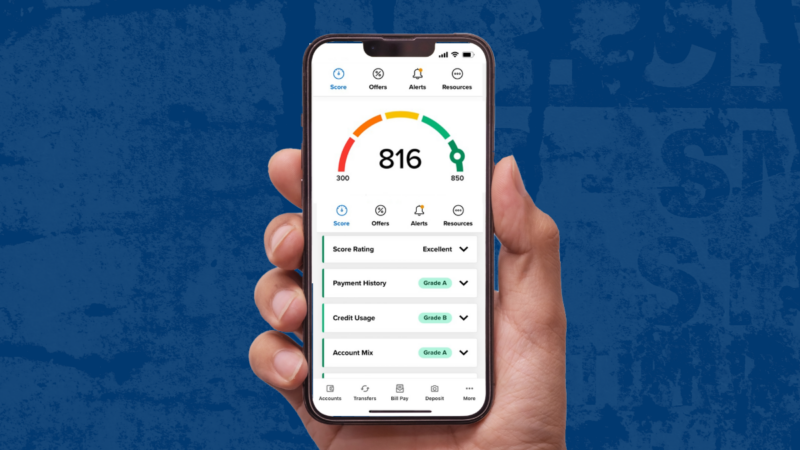A good credit score is crucial for securing favorable loan terms and lower interest rates. It also impacts rental agreements and job prospects.
A good credit score demonstrates financial responsibility and reliability. Lenders use this score to evaluate your creditworthiness, affecting loan approval chances. High scores lead to better loan terms, including lower interest rates, which save money over time. Besides loans, a strong credit score can influence rental agreements, making it easier to secure housing.
Employers in certain industries might also review credit scores during the hiring process. Maintaining a good score opens doors to financial opportunities and stability. Regularly checking your credit report and practicing good financial habits are key to achieving and maintaining a high credit score.
Introduction To Credit Scores
A good credit score is crucial for financial health. It affects your ability to get loans, credit cards, and even jobs. Understanding your credit score can help you make better financial decisions.
What Is A Credit Score?
A credit score is a number that represents your creditworthiness. It ranges from 300 to 850, with higher numbers being better. Lenders use this score to decide if they should lend you money.
Credit scores are calculated based on your credit history. This includes how much debt you have, your payment history, and the length of your credit history. A good score means you are a low-risk borrower.
How Credit Scores Are Calculated
Credit scores are calculated using several factors. Each factor has a different weight. Here is a breakdown:
| Factor | Percentage |
|---|---|
| Payment History | 35% |
| Amounts Owed | 30% |
| Length of Credit History | 15% |
| New Credit | 10% |
| Types of Credit Used | 10% |
Payment history is the most important factor. Make sure to pay your bills on time. The amount of debt you owe also has a big impact. Try to keep your credit card balances low.
The length of your credit history also matters. The longer you have credit, the better. Opening new credit accounts can hurt your score. Finally, using different types of credit, like loans and credit cards, can help.
Understanding these factors can help you improve your credit score. A good score can save you money and open up more financial opportunities.

Credit: gardenstateloans.com
Benefits Of A High Credit Score
A high credit score brings many benefits. It opens doors to better financial opportunities. People with high scores often enjoy lower costs and more options.
Lower Interest Rates
A high credit score means lower interest rates. Lenders see you as less risky. So, they offer better rates. This can save you money on loans and credit cards.
Consider this example:
| Credit Score | Interest Rate |
|---|---|
| Excellent (750+) | 3.5% |
| Good (700-749) | 4.0% |
| Fair (650-699) | 5.0% |
| Poor (600-649) | 6.5% |
As you can see, higher scores lead to lower rates. This results in less interest paid over time.
Better Loan Approvals
With a high credit score, loan approvals come easier. Banks trust you more. You have a better chance to get loans approved.
Here are some benefits:
- More loan options
- Higher loan amounts
- Faster approval times
These benefits make it easier to achieve your financial goals. A high score gives you more choices and flexibility.
Impact On Housing
A good credit score is crucial for housing opportunities. It affects renting and buying a home. A high score opens doors to better deals.
Renting An Apartment
Landlords check credit scores before renting. A strong score shows reliability. It means tenants pay rent on time. This gives landlords peace of mind.
With a low credit score, renting can be hard. Landlords may ask for higher deposits. They may also reject rental applications.
Improve your credit score to increase rental options. Pay bills on time. Reduce debt levels. Keep old credit accounts open.
Mortgage Rates
A good credit score affects mortgage rates. Banks trust borrowers with high scores. They offer lower interest rates. This saves money over time.
With a poor score, mortgage rates are higher. Monthly payments increase. The total cost of the home goes up.
Boost your credit score to get better mortgage rates. Check your credit report. Fix any errors. Pay down outstanding debt.
Here’s a table showing the impact of credit scores on mortgage rates:
| Credit Score Range | Estimated Mortgage Rate |
|---|---|
| 760-850 | 3.5% |
| 700-759 | 3.75% |
| 650-699 | 4.0% |
| 600-649 | 4.5% |
| Below 600 | 5.0% or higher |
Keep your credit score healthy. This ensures better housing opportunities. A good score brings financial benefits.
Credit Scores And Employment
Many people think credit scores only matter for loans. But good credit scores impact employment too. Employers often check credit scores before hiring. This practice is common in many industries. A strong credit score can help secure jobs.
Job Applications
Employers review credit scores during job applications. Good credit scores show responsibility and reliability. Bad credit scores may raise red flags. This can affect your chances of getting the job. A good credit score makes you a more attractive candidate.
Security Clearances
Many jobs require security clearances. These jobs are often in government or high-security sectors. Your credit score plays a role here. A poor credit score can prevent you from getting security clearance. This means you may lose out on certain job opportunities.
Here is a table showing the impact of credit scores on employment:
| Credit Score | Employment Impact |
|---|---|
| Excellent (750+) | Highly favorable for job applications |
| Good (700-749) | Favorable for most jobs |
| Fair (650-699) | Moderate impact on job prospects |
| Poor (600-649) | Negative impact on job chances |
| Very Poor (below 600) | Very negative impact on employment |
Maintaining a good credit score is crucial. It affects more than just loans. It can open doors to better job opportunities. Keep your credit score healthy to improve your career prospects.
Insurance Premiums

A good credit score affects many areas of life. One important area is insurance premiums. Insurance companies use credit scores to determine rates. Higher scores usually mean lower premiums. Let’s explore how this works for both auto and home insurance.
Auto Insurance
Many auto insurance companies check your credit score. They see it as a measure of risk. If you have a high credit score, you may get better rates. Low scores can mean higher costs. Here’s how it breaks down:
- High credit score: Lower auto insurance premiums
- Low credit score: Higher auto insurance premiums
Insurance companies believe people with high credit scores file fewer claims. This means they cost less to insure. Maintaining a good credit score can save you money on auto insurance.
Home Insurance
Home insurance premiums are also influenced by your credit score. Insurers use it to gauge financial responsibility. A high score suggests you’re less likely to file claims. This can lead to lower premiums.
| Credit Score Range | Impact on Premiums |
|---|---|
| Excellent (750+) | Lowest premiums |
| Good (700-749) | Lower premiums |
| Fair (650-699) | Average premiums |
| Poor (600-649) | Higher premiums |
| Very Poor (<600) | Highest premiums |
Keeping a high credit score can help reduce home insurance costs. It’s a smart financial move.

Credit: fastercapital.com
Building A Good Credit Score
Building a good credit score is crucial for financial health. It impacts loan approvals, interest rates, and rental agreements. A good score opens doors to better opportunities. Let’s explore key steps to build and maintain a good credit score.
Timely Payments
Timely payments play a crucial role in maintaining a good credit score. Always pay your bills on time. Late payments can hurt your score. Set reminders or automate payments to avoid missing due dates.
Consider the following tips:
- Use calendar alerts for bill deadlines.
- Automate payments through your bank.
- Keep a checklist of monthly bills.
Credit Utilization
Credit utilization is another key factor. It refers to the amount of credit you use. Keep your utilization below 30% of your total limit. High utilization can negatively impact your score.
Here are some strategies:
- Pay off your balances monthly.
- Avoid maxing out your credit cards.
- Request a higher credit limit if needed.
| Strategy | Action |
|---|---|
| Timely Payments | Set reminders, automate payments |
| Credit Utilization | Keep usage below 30%, pay balances monthly |
By focusing on timely payments and credit utilization, you can build a strong credit score. These habits ensure long-term financial stability and better opportunities.
Common Credit Score Myths
Understanding credit scores can be tricky. Many people believe in myths that can hurt their financial health. Let’s debunk two common myths and uncover the truth.
Checking Your Score Hurts It
Many believe that checking their credit score will lower it. This is false. Checking your own credit is considered a soft inquiry. Soft inquiries do not affect your score. Only hard inquiries, like applying for a loan, can impact your score.
Soft inquiries are safe and can help you understand your credit health. Regular checks can help you spot errors and improve your score over time. So, go ahead, check your score often without worry.
Closing Accounts Improves Score
Another myth is that closing old accounts improves your credit score. This is not true. Closing an account can actually hurt your score. It reduces your credit utilization ratio. This ratio is the amount of credit you use compared to your total available credit.
Keeping old accounts open can be beneficial. They contribute to your credit history length and provide more available credit. So, think twice before closing old accounts.
| Myth | Truth |
|---|---|
| Checking your score hurts it | Soft inquiries do not affect your score |
| Closing accounts improves score | Closing accounts can hurt your score |

Credit: www.cportcu.org
Maintaining A Good Credit Score
Maintaining a good credit score is essential for financial health. It helps you get better loan rates, secure housing, and more. Below are key steps to keep your credit score strong.
Regular Monitoring
Regularly check your credit report to spot any issues. Use free credit monitoring services or request a free report annually. Monitoring your credit helps you stay aware of your financial standing.
Here are some steps to follow:
- Set reminders to check your credit report.
- Look for any unusual activity or errors.
- Track changes in your score over time.
| Service | Frequency | Cost |
|---|---|---|
| AnnualCreditReport.com | Once a year | Free |
| Credit Karma | Weekly updates | Free |
| Experian | Monthly updates | Free |
Disputing Errors
Errors on your credit report can damage your score. Dispute any incorrect information immediately. Follow these steps to fix errors:
- Identify the error on your report.
- Contact the credit bureau reporting the error.
- Provide evidence to support your claim.
- Follow up until the issue is resolved.
Correcting errors can quickly improve your credit score. Ensure all information is accurate and up-to-date.
Here are some common errors to look for:
- Incorrect personal information
- Wrong account details
- Duplicate entries
- Fraudulent accounts
Keeping your credit report accurate is vital for maintaining a good score.
Frequently Asked Questions
Why Is It Important To Have A Good Credit Score ?
A good credit score helps secure loans with better interest rates. It increases approval chances for credit cards. Landlords often check credit scores for rental applications. It can also affect insurance premiums and job opportunities. Maintaining a good credit score is essential for financial health.
What Are The Most Important Things About Credit Score?
Payment history, credit utilization, length of credit history, types of credit, and recent credit inquiries are crucial. Keep balances low and pay bills on time.
What Does A Perfect Credit Score Get You?
A perfect credit score can secure the best interest rates, higher credit limits, and premium credit card offers. It also increases approval chances for loans and rentals.
Why Is It Important That We Have Credit?
Credit is crucial for securing loans, renting apartments, and obtaining favorable interest rates. It also impacts job opportunities and insurance premiums.
Conclusion
A good credit score opens doors to financial opportunities. It helps secure better loan terms and interest rates. Maintaining a healthy credit score is crucial for long-term financial stability. Regularly monitor your credit report and practice responsible borrowing. Start today to build a brighter financial future.

